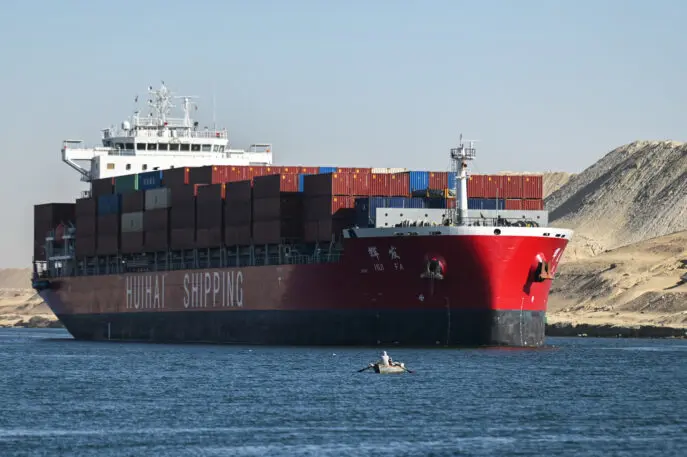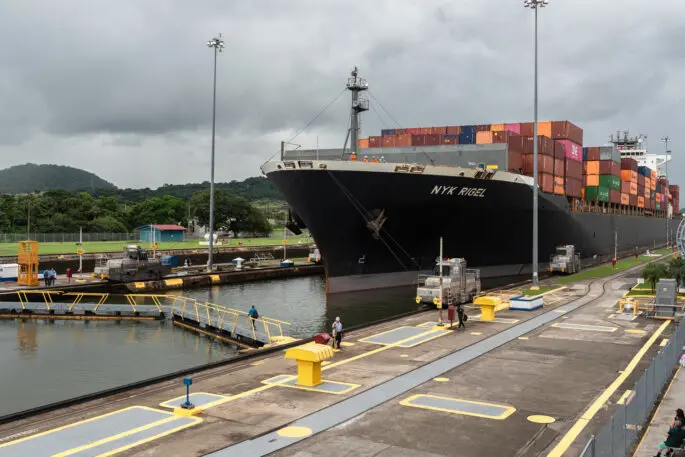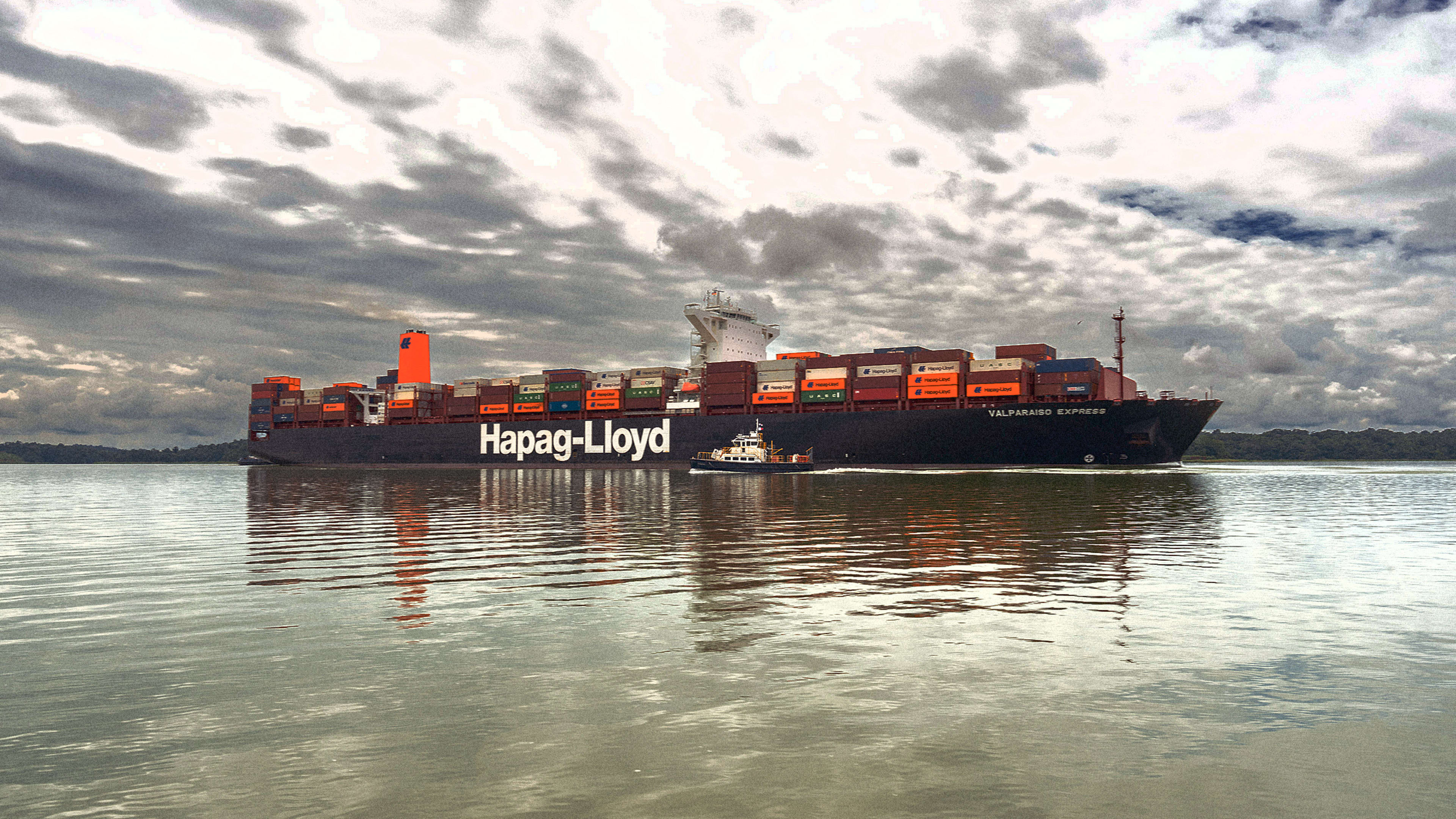Tesla and Volvo both announced this week that they are pausing production at their plants in Belgium and Germany, respectively, given the lack of essential manufacturing components reaching Europe. Tesla, which will halt production for two weeks, said the “considerably longer transportation times are creating a gap in supply chains.”
The disruption to the auto industry is just one example of shortages and delays being experienced across sectors due to two simultaneous crises—of climate change and geopolitics—that are affecting the transport of goods and will ultimately affect their cost.
Two of the world’s most vital shipping routes are currently compromised. Since November, the Panama Canal has had to reduce crossings by 40% due to a severe drought. More recently, the Suez Canal—which usually accommodates 30% of global containers—has become a battleground, as the Houthis, a Yemeni rebel group, have ramped up attacks on ships.

“They are separate issues, but the interaction between them certainly affects the logistics and transport on a global level,” says Arash Azadegan, department vice chair of Rutgers Business School who focuses on supply chain disruption.
When Panama alone was an issue, Suez could pick up the slack. “If you hurt your left arm, your right arm should be available to pick things up a little bit more,” Azadegan says. That’s true especially for larger organizations with bases around the world. If an auto plant can’t ship from Brazil, for example, it could ramp up manufacturing in India.
But now major shipping companies are being forced to reroute entirely. Danish shipping giant Maersk started using some rail routes to divert from the Panama Canal. In the Suez region, things are changing in real time. While a few companies are sending ships through the Red Sea, most are diverting them around the African continent.
Rerouting around the Cape of Good Hope, the southern tip of Africa, adds 3,500 nautical miles and a minimum of 10 days, racking up costs in fuel, crews, shipping containers, and insurance. Across industries, from auto manufacturing and retail to grain and salt to oil and gas, there are now signs of shortages, delays, and price hikes.
Ikea has said there are shortages of some products; Target has reported extended shipment times from India and Pakistan; and Abercrombie & Fitch said it would switch to air transport. Danone has reported a delay in transit times, and Shell said it has temporarily suspended its Red Sea shipments.
While the companies and their shipping partners are absorbing the higher costs for now, as time goes on those costs will naturally expand along the supply chain. Azadegan points to an economic principle known as the bullwhip effect: A small change at the end of a supply chain causes much more pronounced effects upstream. “So if you’re a supplier’s supplier’s supplier,” he says, “any minor adjustment in demand is going to affect you more.”
Take the auto companies. If they’re missing tires, production suffers. But if tire makers are missing rubber, their production also suffers. Just like Tesla and Volvo, tire maker Michelin said it would be pausing operations at its Spanish plants, due to a shortage of rubber.
Nada Sanders, distinguished professor of supply chain management at Northeastern University, believes these crises won’t be resolved any time soon. “This is far more serious than is being assessed,” she says. “I think that it’s going to have a real impact on the consumers in a relatively short amount of time.”
She says disruptions during the COVID-19 pandemic help predict the effects to come. They contributed to the surge in inflation, as demand vastly outstripped supply. Even the 2021 Suez Canal blockage, now mostly remembered as a memeable cultural moment, caused an estimated $60 billion in disrupted trade in just six days and delayed the shipment of a wide variety of goods, from semiconductors to garden gnomes.
Like the pandemic, the current crises don’t have straightforward resolutions. The Houthi conflict is tied to the Israel-Hamas war; the group initiated its attacks in response to Israel’s large-scale invasion of the Gaza Strip. American and British airstrikes have so far not deterred the Iran-backed Houthis, and could serve to intensify the conflict. “I really don’t think the Houthi rebels are going to back down,” Sanders says.

Meanwhile, the Panama drought is ongoing, reducing the number of ships that can pass through the canal—and bidding wars have broken out to decide which companies can jump the queue. The drought is thought to have been caused by the worst El Niño in recent history, and as climate change endures, such disasters could continue to wreak havoc on shipping routes.
For Sanders, the biggest takeaway is how crucial these few routes are for the entire global economy, and how easy they are to compromise. “To be able to see these in this global chessboard is really important,” she says. They illustrate the need to find solutions like alternative shipping routes. For decades, various proposals have included expanding the Panama Canal, or building new canals or rail alternatives in other Latin American countries.
Any of those projects would be long, laborious, and expensive, and could struggle to capture investment and attention once the current crisis is forgotten. Sanders worries the complacency that set in after the pandemic will repeat itself, saying, “I feel like those lessons have not been learned.”
Recognize your brand’s excellence by applying to this year’s Brands That Matter Awards before the early-rate deadline, May 3.
